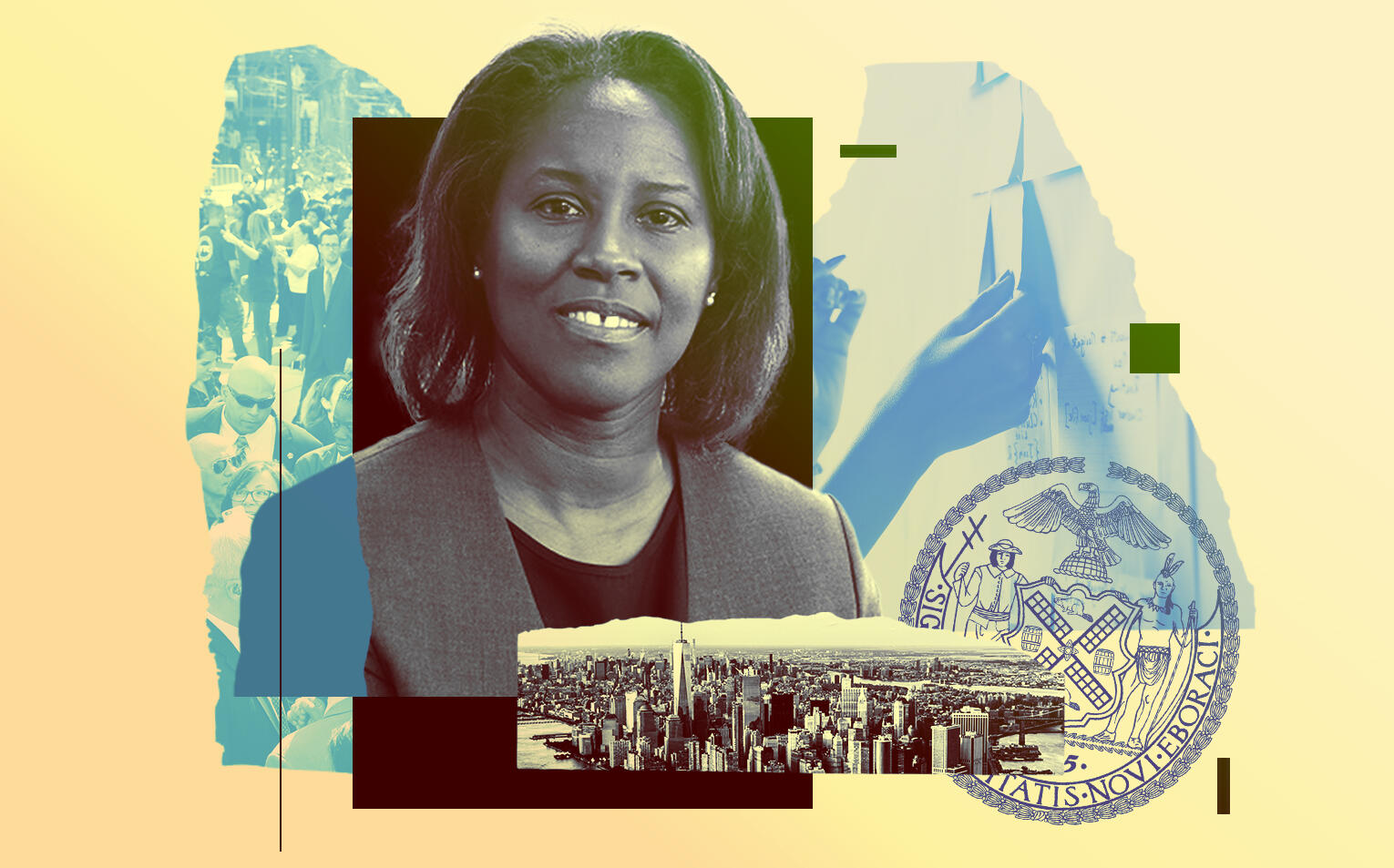Trending
“A hard commissionership”: Housing czar on escaping a mob, saving projects
Louise Carroll reflects on a challenging tenure as HPD chief

Meeting the demand for affordable housing is already an impossible task for the head of New York City’s housing agency. Making matters worse for Louise Carroll, most of her tenure was hamstrung by the pandemic.
Carroll was named commissioner of the Department of Housing Preservation and Development in May 2019. Ten months later, the city shut down. Weeks earlier, Carroll had pushed her team to craft a plan to work remotely, a decision that gave the agency a leg up in moving projects ahead, she said.
That helped her finish on a positive note: Last month, the de Blasio administration announced that it had financed the preservation or construction of 200,000 affordable housing units and that the city is on track to reach its goal of 300,000 by 2026.
On her last day at the helm (AnnMarie Santiago is filling in as acting commissioner), Carroll spoke to The Real Deal about her experience and what lies ahead for the Adams administration:
If you could go back in time, what would you tell yourself on your first day as HPD commissioner?
It was a hard commissionership. One of the things that really helped is that when I came in, we said you had to tell your development partners a year in advance where they would be in the pipeline because it takes six months pre-development before you can close.
You have to communicate. You have to set your pipeline a year in advance. I think for my successor, that is crucial. And the second thing we did was about three weeks, maybe two weeks before the [pandemic] pause, I told my team to give me a plan for teleworking without shutting down any of our functions in case the city shuts down. People could not believe that such a thing could happen. [What] I would tell anybody is “prepare, prepare and over prepare” because this job is very unpredictable.
Did that help move projects along?
We were ahead of the game in March, and because we had a teleworking plan, we were ready to go in June. The city was in such fiscal crisis that all our capital was taken away, and we were told that we would not close any of the developments that were slated for June. We found ways to continue closing deals, to keep people employed, basically, both in the marketplace and to keep nonprofits from going under, to keep MWBEs from going under, we found other sources to close.
“My chief-of-staff and I were surrounded by protesters calling us liars and thieves, and the police had to come rescue us from the mob.”
But because we had such lead time preparing deals, as soon as [the Office of Management and Budget] was ready to give us capital again, we had all these deals that were just ready to go. That’s how we’ve been able to reach 200,000 units on budget and ahead of time.
Was the focus on deeper affordability a mandate for you when you took office in 2019?
It was the focus from day one. The mayor had started off with 20 percent of the plan, and in about 2019, he committed about $1.9 billion to deepen affordability. When I came in on day one, we were reworking our term sheets so that the average affordability on any project would be at about the 50 percent AMI [area median income] mark.
Did that present any new challenges in reaching agreements with developers?
No. We had some back and forth with them at the beginning, but once we put out the term sheet, we let people know that in order to do a deal with us, they had to come in at or below our term sheet subsidy, and that they had to provide the AMI levels in the term sheet.
We are a gap filler in that we are not the only source of financing on a development. So once you put it out into the world that this is what you are going to do, and you stick to it, then everybody else has to work within that framework. It helped that we were in a very low interest rate environment.
Were there other aspects of the job that surprised you? Any part of the role that actually ended up being easier than expected?
I think the good relationship we had with the [City] Council I found surprising. In my time at HPD prior, bad Council hearings were the norm. Indeed, when I took the job, my second hearing was about the third-party transfer program. It was awful. We were surrounded. My then-chief-of-staff and I were surrounded by protesters calling us liars and thieves, and the police had to come rescue us from the mob. That was the tone of the Council hearing. And so, I really expected it all to go further downhill. And in fact, it has been a very helpful and collegial relationship, and so that was very surprising.
Why do you think it changed?
I think being accessible. I think understanding that they represent the people that we try to serve, and taking their calls, their texts and their emails, and personally responding and explaining, and making myself personally accountable to them, so that they can be accountable to their constituents. I think that helped bridge an understanding that when I could do something, I’d do it. When I couldn’t, I would explain why, and that I took seriously their needs, personally, rather than fobbing them off on someone else.
What else do you think people should understand about this job?
Whoever takes this job should consider that they work for many constituents. To deliver for the mayor, you have to have good relationships with all the developers, not-for-profit and for-profit, and everyone in between. You have to have good relationships with the community, with tenants. You have to be responsive to the regular person on the street who may email or call you about their problems, as well as to the Council and to the Senate and Assembly and Congress, and your mayor.
If you serve that many people, and you are doing it energetically, then this job has a shelf-life. So, I really really would say that the best way to do this job is to know that you are responsible to a lot of different people.
What are your thoughts on the 421a tax break, which is slated to expire in June?
I think the program is maligned. I think it is a necessary program, it is a necessary tool for the city, to create affordable housing, and to support the mandatory inclusionary housing program, which was predicated on their being a tax exemption like 421a. Without that tax exemption, it doesn’t work. In addition, 421a produces on average, about 4,000 affordable units to our pipeline. That is a valuable source of units that if we had to pay for otherwise, we couldn’t produce as much.
“We found ways to continue closing deals, to keep nonprofits from going under, to keep MWBEs from going under.”
Does the program need to be changed? Definitely. We should eliminate option C [30 percent of units affordable at up to 130 percent of the area median income], and create deeper affordability. But the concept of having a tax exemption that allows folks to produce affordable housing when they produce market-rate housing is a good thing for the city.
Is there a way to change MIH that would do away with the need for 421a?
Because development is so expensive in the city, typically market-rate development — development that is not subsidized by the city — does not get developed without 421a. There are exceptions, but typically it doesn’t. To say that MIH should be different, unless something drastically changes in the market with land prices, I don’t see how that could be. It is more complicated than the zoning resolution can solve.
What’s next for the J-51 tax break, which was recently renewed?
We’ve been advocating at HPD for reform. There have been so many other things that the city and state needed to focus on. But definitely, I would expect in the new administration that J-51 reform would be on the agenda.
What’s next for you?
Definitely a nap. I will take two months off and try to think about it. I have been working full speed every day up until the last day. I haven’t settled on anything, truthfully.




